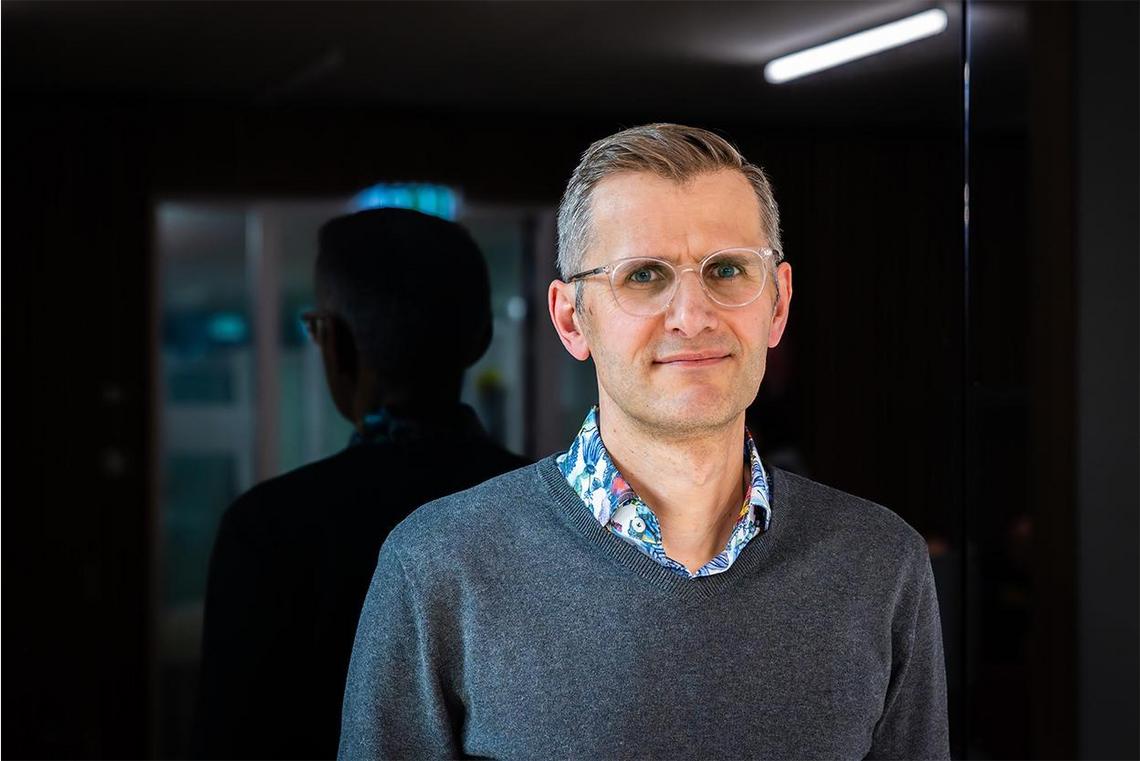Since September 2024, Dr. Karl Michael Höferl has been Head of the Institute for Sustainability and Circular Economy and Programme Director of the new bachelor degree programme Sustainability Management at IMC Krems. The programme, which started in the winter semester of 2024/25, combines ecological, social and business aspects to prepare students for the challenges of the 21st century. With impressive academic and professional experience as well as a passion for sustainable development, Höferl has a clear vision for his new role.
Press
Research meets sustainability

Back to the roots
Karl Michael Höferl’s career began in Krems, his hometown. After graduating from high school, he studied Spatial Planning at Technische Universität Wien and Geography at the University of Vienna. His degrees laid the foundation for his later career in planning and organisation. As early as 2001, he co-founded the engineering firm ‘im-plan-tat Raumplanungs GmbH’, for which he worked as a managing partner until 2005.
In 2005, he switched to academia and completed his doctorate at the University of Natural Resources and Life Sciences, Vienna, in the doctoral programme ‘dokNE – Sustainable Development’. His dissertation on climate change adaptation marked the start of an academic career that has taken him to renowned universities such as the University of California, Santa Barbara, HafenCity University Hamburg and the University of Innsbruck. Most recently, Höferl worked as a senior scientist at Technikum Wien before joining IMC Krems in 2024.
A clear vision for sustainability
Höferl aims to establish sustainability as a central component of organisational strategies. “Economic activity must be understood in a contemporary context – based on concepts such as ‘Doughnut Economics’,” he explains.
In addition to academic training, he is focusing on concrete measures on campus: an organisation-wide carbon management strategy, more intensive sustainability reporting and the elimination of single-use plastics. The degree programme itself attaches great importance to combining theory and practice. “Our students are to learn how responsible economic activity works – not just in theory, but in direct collaboration with industry partners,” says Höferl.
Degree programme and research with great potential
According to Höferl, the interdisciplinary orientation makes the degree programme special: “The combination of business, ecological and social modules in this form is unique.” Close cooperation with industry partners enables students to develop and implement real projects.
In the long term, Höferl would like to expand the programme, particularly for public bodies, the social economy and NGOs. “We need well-trained specialists to develop future-proof solutions for society, the environment and the economy,” he emphasises.
Höferl also devotes his research to his passion. His current focus is on climate resilience and carbon management. Projects such as Car2Flex, which investigates bidirectionally chargeable vehicles, and SmallWinds, which explores the perception of wind turbines, demonstrate the range of his work. “I am particularly fascinated by questions to which there are still no clear answers,” he says. He shares this enthusiasm with his students: “The most exciting questions are often those that we can only solve by working together.”
Personal inspiration and balance
In his private life, the father of three draws inspiration from his family. “The joy and empathy of our children are an inexhaustible source of motivation,” he says. He also lives this philosophy in dealing with his students: “Be humble, ask and listen. There is always something new to learn.”
Although he once did not believe that he would return to Krems professionally, Höferl now sees things differently: “At the beginning of my studies, it was clear to me: I will never return to Krems. Thirty years later, I see things quite differently,” he says with a smile.
In Karl Michael Höferl, IMC Krems has gained a charismatic visionary who not only lives sustainability, but also enriches the university with his expertise and inspiration.
